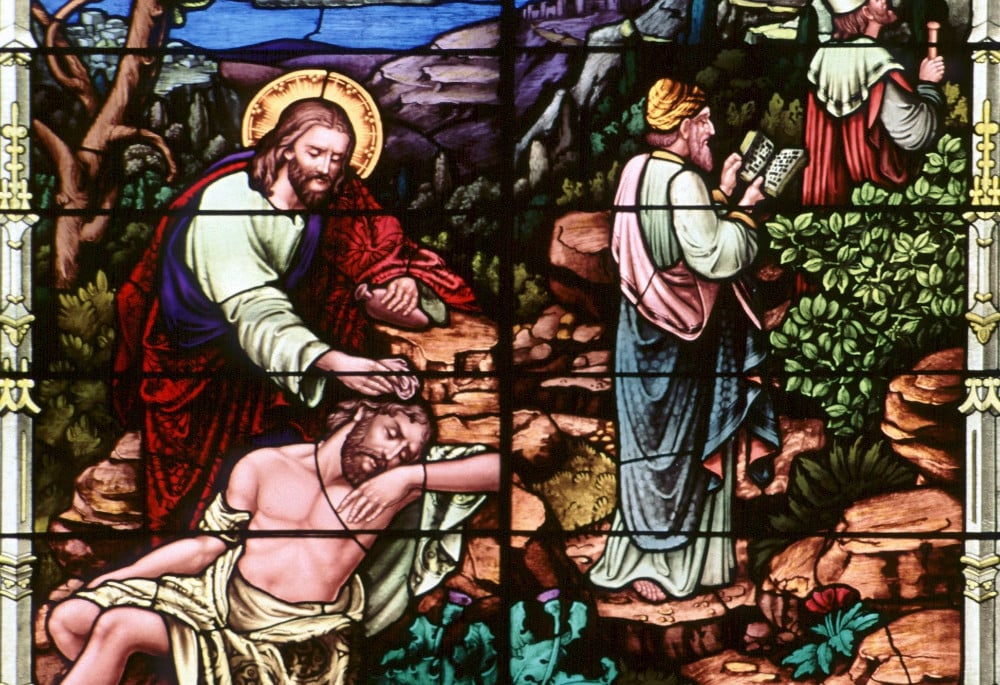
This is what Moses told Israel about the voice of God. In this week’s first reading, Moses further told them how near it is: “it is in your mouths and in your hearts.” With this, he exhorted them to listen; to “carry out” God’s command.
In this week’s Gospel, Christ clarifies this command and gives us an example of one who carries it out in the Good Samaritan. The command is to: “love the Lord, your God, with all your heart, with all your being, with all your strength, and with all your mind, and your neighbor as yourself” (Lk 10:27).
The good Samaritan, we see, loved his neighbor as himself. In him, God’s voice was near. When he saw his neighbor’s affliction, he was “moved with compassion” and treated him with mercy, going to great lengths to help his neighbor. He picked the man up off the ground, washed his wounds and found a place for him to stay, even paying for everything he might need with his own money.
| July 10 – 15th Sunday in Ordinary Time |
|---|
|
Dt 30:10-14 |
But Christ’s example of the good Samaritan does more than offer an example of how we might respond to God’s voice and carry out his command. This example is also a parable, revealing how God thinks of us as his neighbors. Indeed, God became our neighbor in Christ, bringing God’s Word close in a human voice, and living according to his own commandment to us. This should help us carry out this same commandment ourselves.
St. Bernard of Clairvaux (d. 1153) spoke beautifully about this: “You will never have real mercy for the failings of another until you know and realize that you have the same failings in your soul. Our Savior has given us the example. He willed to suffer so that he might know compassion, to learn mercy he shared our misery.”
Now, this is a striking thing to say, isn’t it? We might wonder what St. Bernard meant when he said Christ suffered so he might come to know compassion and to learn mercy. Isn’t Christ the one who came to show us mercy — to “pick us up” and “wash our wounds” and give us a “place to stay”?
St. Bernard has an answer for us. God became man so as to draw near to us, as near as he could possibly be, and so to reveal his love. “[B]y such experience,” St. Bernard says, “[God] was seen as closer to men.” And not only that, but “lower still he came to take our form in which he could do what he could not do before, suffer and … learn by experience the mercy of a fellow-sufferer.” So, God became our neighbor, and one who needed our mercy! He was anxious and sorrowful, needful of the disciples’ company; he needed Simon of Cyrene to pick him up and help carry his cross; he needed Veronica to wipe his wounded face.
In learning mercy by human experience, Christ drew us into the mercy of God. This, friends, is compassion: to give your entire being to your neighbor by entering into their suffering. Thus, we can conclude with Bernard of Clairvaux: “The work of God’s tender love had its beginning in his eternal mercy, its completion in the mercy shown in his humanity.” He is our good Samaritan. And we are called by God’s voice, spoken in Christ’s humanity, to do likewise: love your neighbor as yourself, for in doing so we are that good Samaritan who also offers his love to God in his merciful works.
Catherine Cavadini, Ph.D., is the assistant chair of the Department of Theology and director of the master’s in theology program at the University of Notre Dame.





